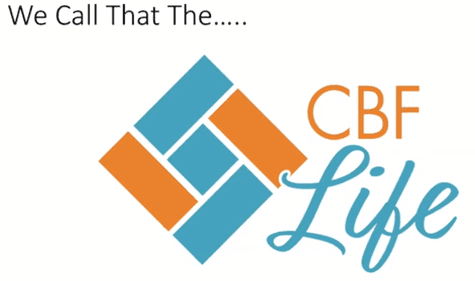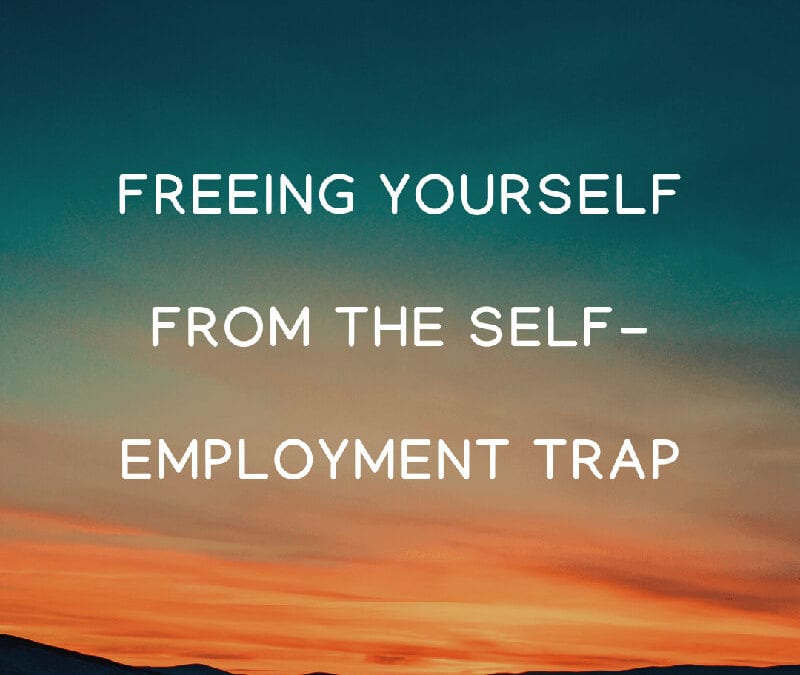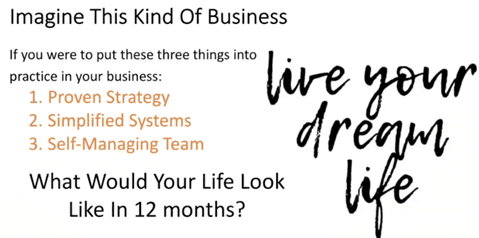Are you stuck in that self-employment trap, the entrepreneurial trap? Have you been stuck in the same place in your business for a long time? Do you feel like you’re the Chief Everything Officer by day?
Every day, during the day, you’re doing everything. You’re the Chief Everything Officer, you’re cleaning by day, and then you’re trying to be a CEO in your spare time. You are forgetting what spare time even looks like. Most of us don’t have real spare time, especially if you own a cleaning business, meaning that spare time is time you had to rob from your family. That’s your spare time. It’s nights and weekends because you’re cleaning by day, you’re making phone calls, doing estimates, figuring payroll, processing payments, trying to do marketing, trying to hire cleaners, trying to buy supplies, trying to wash towels, trying to fix broken vacuums. Hello. You’re cleaning all day and being a CEO in your spare time, and there is no longer such thing as spare time.
You’re juggling too many responsibilities. The other problem with the self-employment trap is that you’ve become a full-time firefighter. If you feel like you are a full-time firefighter, it means, basically, that you’re fixing all the problems; you’re having to take over for your team when you shouldn’t, and you just spend your days going from one crisis to one chaotic mess, to one problem, and you’re constantly putting out fires all day. It’s really frustrating, and it’s not fun. It’s absolutely exhausting because that’s not why you went into business. You don’t want to be a fire-fighter everyday.
The Self-Employment Trap Leaves You…
…feeling like you’re unable to trust the team you have.
…stressed out because you have to babysit the process of cleaning and EVERYTHING else.

I went into business, quite honestly, to create more time freedom for my family and to make a lot of money. I know people are like, “Oh, don’t say that out loud.” Why not? Isn’t that what being an entrepreneur is about? Then, if you make a lot of money, you can give it away. You can do wonderful things with it, like serve 40,000 cancer patients who have dirty homes, and they shouldn’t be cleaning their homes themselves.
But you have to break free from the Self-Employment Trap. What happens is it quickly leads to complete burnout. I can’t tell you how many business owners that have talked to me, and my coaching program was their last-ditch effort. They said, “I’ve been cleaning for 10, 15 years and I can’t take it anymore. If this doesn’t work, I’m out.” They’ll literally walk away from their business because they’re burning the candle at both ends.
The self-employment trap also wrecks your QOL, and that is called Quality of Life, which tends to lead to bad health habits, burnout, feeling bitter about your business and about your employees, and about those price-only customers, and about the economy, and about life. It leaves you feeling bitter, and you don’t know why because your business isn’t working for you. You’re working for it.
Or spouse frustration. You have a spouse that says, “You’re never here. You’re always in a bad mood. You work hard, and you don’t bring in enough money to help us with the bills.” You have spouse frustration – female and male. You have a spouse, or you have kids that say, “You’re always distracted; you’re always on your computer; you’re always answering texts during dinner.”
These are real things, and how do I know this? I’ve been there; done that; had that business. Quality of life is as important as the income potential that being a successful entrepreneur should offer. It’s not enough that you could make a lot of money, but you work like a dog day and night. It’s not enough.
Quality of life is a part of why we got into this business, and one without the other isn’t worth it. Who cares if you’re rich and you have nobody in your life? Honestly, it is not entirely fulfilling to have great family relationships, but you can’t do anything because you’re always broke, and you can’t give them what you’ve always wanted to give them, whether it’s college or home or a decent car, or whatever. It’s time to get out of your own way.
Your Business Is Like A Tree
 Just like a tree, your business needs three different components to be strong and healthy. I find that most people are missing one or most of these three simple components. It’s not complicated. Everything we do in my community is simple, but they’re not necessarily obvious, and you’re not going to guess your way there.
Just like a tree, your business needs three different components to be strong and healthy. I find that most people are missing one or most of these three simple components. It’s not complicated. Everything we do in my community is simple, but they’re not necessarily obvious, and you’re not going to guess your way there.
There are three parts of the tree. I want you to think about roots, the trunk, and the branches.
- Proven Strategy: The first part of having a healthy business, which looks like a healthy tree, is you have to have a proven strategy. Most people have no strategy. They’re just winging it. “I’ve started cleaning, and now I’ve hired people, and they’re cleaning. That’s not a strategy. That’s you grinding it out like a maniac to the point where you’re exhausted.
- Scalable Systems: You have to have scalable systems if you want to be bigger than the business you are today. You have to have scalable systems if you want your cleaning business to be bigger than you are. You don’t need scalable systems if it’s just you cleaning for the rest of your life. You don’t really need them.
- Self-Managing Team: This is the one that everybody misses, and this the thing that we’re the best at. You need a self-managing team. Otherwise, you could grow big and have a miserable life.
Proven Strategy
You need a proven strategy. In your business, we correlate those roots of the tree to the strategy of your business, so I want you to think about the roots that need to go deep for you to have a healthy tree that the wind won’t slam down, where the roots are shallow. Your strategy needs to go deep – proven, effective strategies, not broken and chaotic strategies because, as you grow, your broken and chaotic strategies will cost you a fortune, you won’t make any money, and your life will be miserable. The roots need to go deep to create a solid foundation no which you can grow.
If you grow a big tree with shallow roots, the first windstorm that comes by, it will knock the tree over on a house and destroy everything in its way. The roots enable you to make all the sales possible in your business that you want to make because you can scale. I can sell more. I don’t have to keep turning away business. I remember when I was turning away business left and right. I didn’t have any roots. I couldn’t sell as much as was coming my way. It’s important that you have a simple strategy that works. It can’t be complicated, or nobody will follow it, including yourself.
Most people’s approach to business leads them to stall with complexity. They start growing, and they make their business more and more complicated. Complex processes require the owner to remain hands-on just to protect the quality of their services. So, the first thing is, you need a strategy; you need a business strategy that works and most cleaning business owners don’t have it.
Scaleable Systems
A healthy cleaning business has scalable systems. Once you have your strategy clear, you can actually stack and repeat systems on top of one another and grow big. The problem is, most people are stacking systems on top of a broken strategy, so they’re trying to grow big, but it’s just chaotic. It’s a mess. It’s exhausting and it’s not profitable. Then they pull back, and they’re like, “I’m starting to get bad reviews. Forget it. I’ll just keep cleaning.”
You don’t want to scale a broken strategy. Scalable systems allow you to support the weight of the growth. Think of the scalable systems as the tree trunk. A nice, heavy, thick, healthy tree trunk is useless without the roots, without the strategy, and that’s why you can’t grow, and that’s why things topple when you try to grow that nice trunk on shallow roots.
Self Managing Team
Lastly, we have the branches. It’s the pretty part. This is the fun part. I’m going to say this is the money; this is the production. Everybody likes the fruit; everybody likes the beautiful leaves, the gorgeous flowers. It’s the crown. It’s the branches and the leaves. This is the self-managing team. This is the thing everybody wants. This is the thing nobody seems to be able to get.
The amazing team bears fruit that produces and that consistently delivers. It frees the owner up to be the CEO instead of the housekeeper, instead of the fire-fighter. The amazing self-managing team is the only way the owner gets free from the tediousness of doing and being involved with every single detail, and putting out fires, and participating in the cleaning, and constantly having to be there to make sure the sales process gets done right.
The self-managing team is where time freedom and high profits will come from.
It Takes All Three Parts to Be Successful
Each layer that I’ve described – these three layers – each layer is dependent upon the other in order to be strong. In other words, beautiful, healthy, thick, lush leaves and fruit are useless if the trunk is weak and the roots are shallow. That things going to fall, and break, and hit somebody on the head.
Each layer is dependent upon the other in order to be strong, in order to grow and scale. Growth represents more income, more revenue. Growth represents money and wealth. But scale represents quality of life, and this is where business owners get tripped up. “I’m trying so hard to grow, but I’m miserable. I work all the time. I’m trying so hard to grow, but it’s a chaotic mess, and I’m stressed out and grumpy all the time.”
Growth represents the wealth, but scale represents the quality of life. My philosophy is if you can’t have both, why are you bothering? I want both. I don’t want quality of life and to still be struggling financially. And I don’t want wealth and not have the time to enjoy it. I want both as an entrepreneur, and I believe we have it backward in this country when we think that being in business for yourself means you work all the time and you struggle to break even. No.
We have it backwards. If you grow without scale, you work more, and more, and more, and you make less, and less, and less for your time. Remember, you used to make a lot of money when you did all the cleaning, and you had no employees? Now, you make less money, you help with the cleaning, and you work all nights and weekends. So if you try to grow without scaling properly, you just make less, and you work more. You have less time freedom – not more. The opposite of what you’re shooting for.
So, proven, simplified, strategy, what does that look like, really quick? What is a proven, simplified strategy? Those three things, you have to have. What does that look like? I’m a big believer in simple because I am a simple gal. I do not have a college degree. I don’t have an advanced academic degree; I don’t have a Master’s Degree in Business. I barely made it out of high school alive. I do not have the sophisticated advanced business skills that so many people have. In fact, most small business owners have the skill, it just needs to be focused.
Focusing on a very simple, proven strategy is at the core of what I teach in my Cleaning Business Fundamentals program. It is what allows you to become Mop-Free Millionaires. You must have a model that works. Unfortunately, many cleaning business owners are following a broken model, and we’re trying to make that broken model work. How do I find good workers that won’t keep quitting? You can’t. Get used to it. You pay them $11 an hour. Your model is broken. “I can’t afford to not pay them $11 an hour.” “Okay, well, let’s fix your strategy so you can.
A broken business model is unprofitable. You have low-paying clients; you have bad employees; you have wrong-fit customers on your books. Maybe your model is simple, but it’s broken. It’s not complicated, but it sure doesn’t work now that you want to scale and get out of the field. If it’s broken, there’s no point in trying to scale it. Or you’ve made it too complicated. You’ve got all these rules and lists, and manuals and nobody follows them because it’s too complicated.
Complexity Is the Enemy of Scale
Unfortunately, It’s much easier to complicate your business than to keep it simple, so we must always be mindful of not letting things get out of hand. Ultimately, a proven, simplified strategy allows you to systemize with ease. My simple strategy, the business, is why I’ve been an absentee owner for over 15 years, and kind of a part-time owner before that only because I didn’t know what to do with myself before I started my non-profit. I showed up every day, but they didn’t need me.
It was my simple strategy that allowed me to grow and scale with ease and to empower a winning team because if it wasn’t simple, how could they do it? Most people are trying to empower a bad team. They’ve got the wrong people, and they’re trying to empower them, and it’s not working.
If everything you do in strategy was simply an answer to a crisis that you had, that’s not a strategy, and I promise you, you’ve complicated things. How do you pay, and why do you pay that way? “I’ve tried several things; nothing works.” That’s because you’re not using a strategy. Do you have a strategy for what standard you have when you hire an employee? Most people are like, “No, I’ll take whoever. Do you want to work part-time? Okay, you’re hired. You want to work full-time? Okay, you’re hired. You want to work only two days a week? Okay, you’re hired.”
That’s not a strategy. That is building your business structures around the last crisis you had and not knowing how to overcome the crisis. Do you know how much your employees should generate every year? Most people have no idea. One full-time employee should generate $55,000 to $65,000 a year in revenue to your business. They should, and they can. I’ve never met a business owner who was doing that unless they had taken my CBF Formula and followed it.
Three Steps to a Simplified Strategy
What do we need to do to have that simplified strategy?
Step 1: You need a CEO mindset.
A cleaning business owner I recently spoke with had a cleaner’s mindset. Every time something went wrong, she’d put her housekeeper’s apron on and took off her CEO habit. She and I agreed that she probably left $100k on the table in the past year because she did not stay out of the field. She didn’t follow the steps to keep herself out of the field. So, you have to have the courage.
She was operating in a state of fear. You can’t see where you are all by yourself. You’ve heard the statement: you can’t see the forest for the trees? This is true. If you don’t have a CEO’s mindset, you don’t even know it; you have a cleaner’s mindset, and you’re going to clean forever until that changes.
The truth is, most business owners are too biased and too emotionally attached to what they’re doing, and the way they do it, and the prices they charge. They’re too emotionally attached to their business, their clients, and the actual cleaning themselves to see it objectively. I pointed out to her, “Every time you went out and cleaned over the past 12 months, instead of staying out of the field and finding a way and following our systems, you made the choice to be a housekeeper for another year. Here it is a year later, and you’re still cleaning. You started out Mop-Free.”
It’s like, “Wow! I needed somebody else to point that out.” Why? Because you can’t read the label from the inside of the jar. You don’t know what you don’t know. You only have the perspective that you have today. We have to be open to gaining a different perspective and not operate out of fear. The fear keeps you from adopting the CEO mindset. If you ever want to be a Mop-Free CEO instead of a cleaner or an owner/cleaner, you have to get ahold of the CEO mindset.
Step 2: Crystal Clear Vision
You have to have a crystal-clear vision. I have noticed that this is very rare with entrepreneurs. They really don’t have a clearly defined vision for what their business or what their life should look like. They know what they don’t want, but they don’t know what they do want. “Do you want a janitorial company?” “No, I want residential.” “Then why are you taking on all these janitorial accounts? Do you want a post-construction cleaning business where you, the owner, has to participate? Do you want an organizing business?”
Once you’re advanced, skilled, and scaled, you can add these things – no problem. But when you’re struggling to get out of the field, you’ve got to nail one thing and get it right before you add these other things. A successful business can add these other things later when they have simple strategies, and scale in place, and a self-managing team.
Do you want to be a million-dollar business? Do you want to earn a 6-figure income? Then why are you settling for earning 30 Grand a year? What is the 6-figure income? That’s $100,000 a year. Do you want to make $100,000 a year after everybody’s been paid? Do you know what you want?
Or do you just want to make a little more than you are today? “I’m really struggling; I’m really scraping by. I just want to make a little more.” What is a little more? Define it. Do you know what you want? If you don’t have a crystal-clear vision of what you want, no wonder you’re not going to get it.
I asked the same owner, “Do you want to be Mop-Free? And when do you want it?” She said, “I want to be Mop-Free yesterday, and I want it now.” I said, “Then, you’re done cleaning.” And she said, “You’re right. I’m done.” She knew better. Fear was keeping her from staying out of the field completely.
You probably have a vision; most of us do. But you have too much vision. Your dreams are so big you have no focus. You’re all over the map. Most entrepreneurs don’t struggle with vision. We have a big out-of-control vision, and it’s completely unfocused. Most business owners have too much unfocused vision, and as a result, their vision isn’t powerful or even possible.
Step 3: The Profit Model
The third thing you’ll need for your simplified strategy is Profitable Positioning. In other words, we call this the Profit Model. I have yet to meet a cleaning business owner that could tell me what their Profit Model is? Most people are like, “I don’t know. I just hope and pray I have a little profit left over to pay myself every month.
That is not a profit model. That is a wish and a prayer. And too often, it doesn’t come true. Cleaning business owners are selling too many different kinds of services to many of the wrong people at a price that will not scale. In other words, you’re selling it at a price that will mean you’ll always be broke, and you’ll never have enough to pay your cleaners well, and they will turn over, and over, and over and drive you crazy and wreck your quality of life.
And they really don’t understand what differentiates them from their competition. They don’t have a clue. They don’t know. How am I different? You can’t be profitable if you’re like everybody else because everybody else is broke. Positioning and branding actually differentiate you from your competition, so the right customers come to you.
I met Lisa Shaul about a year-and-a-half ago at the QDS Conference. Lisa Shaul is awesome. She shared with me a story last year at the Quality Driven Software Conference. She said, “I’ve worked with a lot of coaches over the years, but a year ago, I took your course. I used to come to these conferences, and I would have my little peer group. We would all sit around the table, and we would complain about our businesses and how we can’t seem to get to a million dollars, we can’t seem to keep staff. We’re hitting burnout. We work long hours. It’s not worth it. I don’t make enough.”
Then she said, “I had run-away employee turnover, and we would all sit around a table and talk about it.” She had a successful business. I think it was $600,000 to $7,000 a year, but she worked all the time, she didn’t make enough, and her employees turned over and over and over. She couldn’t get to the million-dollar mark.
She said, “Debbie, I took your course a year ago, and this past year, I was sitting at the conference, and all my same peers were complaining about their business and their cars breaking down, and their employees quitting, and their price-sensitive customers, and the hours that they work. They were all complaining.” And she wasn’t saying anything.
She was completely quiet. Somebody finally said, “Lisa, you’re not talking. What’s going on?” She said, “We hit the million-dollar mark, and my employees are happy.” They all looked at her, and they went, “What?” She said, “Yeah, we hit the million-dollar mark a few months ago. My employees aren’t turning over, and they’re really, really happy. I finally have my life back. I’m going on a two-week honeymoon as soon as this conference is over, and I love my business again.
She didn’t want to brag. She didn’t want to be the jerk in the crowd that’s like, “I figured it all out. You people are losers.” She wasn’t. She was very sensitive to their pain. But she had this little secret. She took the CBF training, and she knew many of them that had never taken it were like, “What does she know?” They asked her, “What did you do?” And she told them. “I joined CBF, and it changed my life.”




